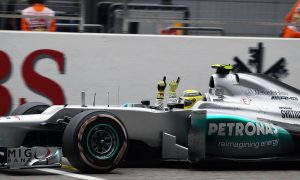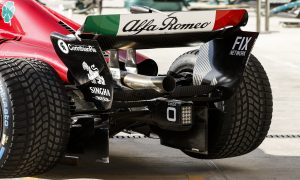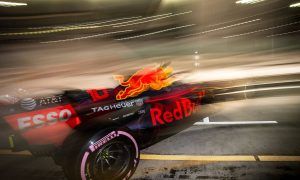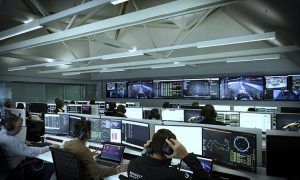
© XPB Images & F1i
The cars are quite complex with the hybrid power units. How has this affected your job?
“It hasn’t really affected my job. There is a lot to learn and a lot to understand, but our engine partner Mercedes led us through that seamlessly. I personally am a big of fan it; I love the technology. The fact the media think the concept is too complex I do find a little confusing. Yes, there are a lot of things going on, but basically we are just storing power in a battery and then using it when we need it. The theory is actually quite simple. The way we do it is complex, but isn’t everything like that these days? Even storing a TV programme is more complex than it used to be, but the end result is much better.
“I am a big fan of what we do now with the power unit and the efficacy it has to offer. The power units that we have now are using over 30 percent less fuel than the V8 engines we were running back in 2013 and we are now going faster breaking lap records.”

© XPB Images
When did you decide you wanted to be involved in Formula 1?
“My Formula 1 ambition began at school. I had always wanted to work in motor racing and my initial aim was to work for a Formula 1 team on the engineering side. I left school and went straight to work for Magnum Race Cars and then in 1987 went to work for Eddie Jordan who had just won the British Formula 3 championship with Johnny Herbert.
“We then went on to win the International F3000 Championship in 1989 with Jean Alesi and in 1991 we started in Formula 1. I have been with this team since day one. I started with Eddie in 1987 and then in 1990 we started to build the team for Formula 1 with the first car. Back then I actually worked on Bertrand’s [Gachot] car as a mechanic.”
Are there areas where you worked that have evolved a lot? For example, is it much more data driven?
“One area that has changed greatly, even over the period of time I have been doing it, is the financial side. In the past, with Formula 1, you spent the money you needed to get the job done. Now, every single penny has to be accounted for. That side of it has become far more professional, certainly from my side in having to control the budget that is available, right down to the last penny.
“In fact, from the back end of the season up until the New Year, the majority of my time is taken up with budgets, which is something I never expected to be doing when I got involved in this sport. It means I probably do more hours in December than any other month of the year, which always makes me laugh when you get to the last race of each season and everyone says, ’Are you looking forward to a few weeks off?’
“We never go over-budget. We never spend too much. We always spend what is available to us. Again, it’s a case of how can we be smarter, how can we make more money available for performance? I think we’re in a very good position to do a lot with a little, because we’ve always had to. We were brought up that way.”

© XPB Images
Tell us more about your job at Red Bull, Rocky
Tells us more about your job at McLaren, Eric Boullier
Andrew Green, Force India's smooth operator






